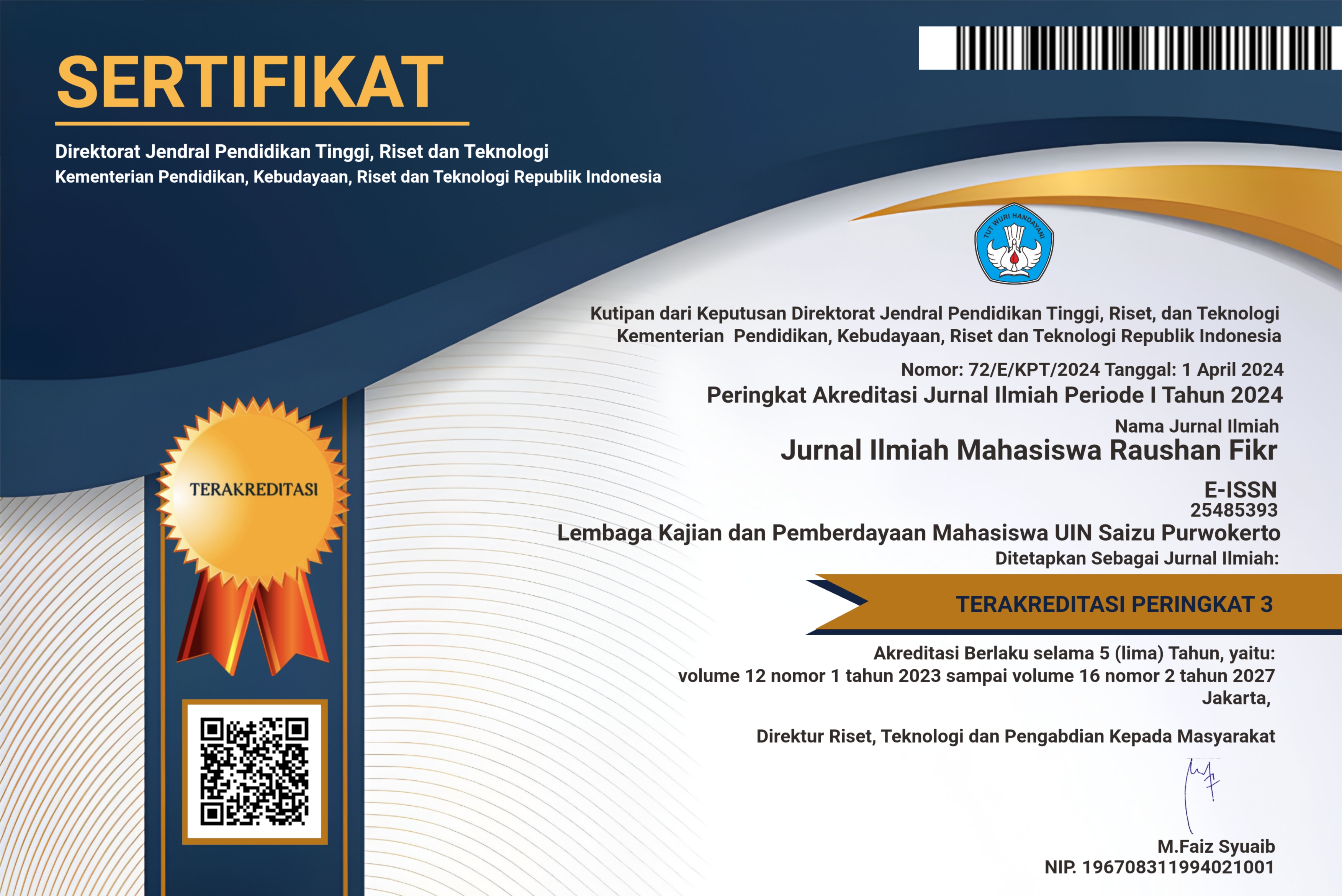PENDIDIKAN KARAKTER KEMANDIRIAN BAGI PEREMPUAN DALAM NOVEL LOVE SPARKS IN KOREA KARYA ASMA NADIA (Pendekatan Analisis Gender)
DOI:
https://doi.org/10.24090/jimrf.v6i2.2745Keywords:
Character Education of Women’s Independence, Love Sparks in Korea Novel, and Gender AnalysisAbstract
Women have similarities between humans in the main teachings of Islam. However, in today’s society women are still regarded as weak creatures compared to men, women have only a role as a wife and mother. Women can not develop their potential because of the phenomenon of gender inequality that occurs in society. Love’s novel Love Sparks in Korea by Asma Nadia has an idea or idea that conveys women’s struggles in facing the problem of Gender, leading to the characterization of female heritage. With their weaknesses, the character of independence has been embedded in them so that they are able to deal with the phenomenon of gender justice that occurs in the community in various areas of life, such as social, economic, educational, cultural and religious fields.Using the method of gender analysis, ie the differences between men and women in roles, functions, rights, responsibilities, and behaviors that are shaped by the social, cultural and cultural values of the research community groups that will be undertaken in the novel Love Sparks in Korea by Asma Nadia, aims to find some quotes that show the character of independence education for women. This research is research library or library research that is qualitative. The intended literature research is to make library materials in the form of books, scientific magazines, documents and other materials that can be used as a source of reference in research. This study also uses a literary approach to gender literature using feminist literary criticism.The results of this study indicate that the independence character education for women in Love’s novel Love Sparks in Korea by Asma Nadia is found in several female characters in the novel which is able to have the character of politics independence independence, education independence, cultural independence and religious independence. The education of women’s independence character in the female characters of Love Sparks in Korea novel by Asma Nadia has relevance to Islamic Religious Education material in SMA / SMK / MA 2013 curriculum in everyday life. The value of Islamic Education should be applied in everyday life, especially Faith and Taqwa of Muslim women today, because a Muslim woman is required to be a smart, independent, creative woman and always keep her faith and devotion to face modern life.Downloads
References
Hadi, Sutrisno. Metodologi Research I. Yogyakarta: Andi Offset. 2014.
Najim, M. Dkk. Manjemen Strategik Pendidikan Karakter Bagi Anak Usia Dini. Yogyakarta: Gava Media. 2016.
Nashir, Haedar. Pendidikan Karakter Berbasis Agama dan Kebudayaan. Yogyakarta: Multi Presindo. 2013.
Mulyana, E. Managemen Pendidikan Karakter. Jakarta: Sinar Grafika Offset. 2012.
Mu’in, Fatchul. Pendidikan Karakter, Konstruksi Teoritik & Praktik. Yogyakarta: Ar-Ruzz Media. 2012.
Nurhayati, Eti. Psikologi Pendidikan Inovatif. Yogyakarta: Pustaka Pelajar. 2011.
Desmita. Psikologi Perkembangan Peserta Didik : Panduan bagi orang tua dan guru dalam memahami psikologi anak usia SD, SMP, dan SMA. Bandung : PT. Remaja Rosdakarya. 2009.
Ali, Muhammad. Psikologi Remaja: Perkembangan Peserta Didik. Jakarta: PT. Bumi Aksara. 2014.
Downloads
Published
How to Cite
Issue
Section
License
Authors who publish with this journal agree to the following terms:
- Authors retain copyright and grant the journal right of first publication with the work simultaneously licensed under a Creative Commons Attribution-NonCommercial-ShareAlike 4.0 International License that allows others to share the work with an acknowledgement of the work's authorship and initial publication in this journal.
- Authors are able to enter into separate, additional contractual arrangements for the non-exclusive distribution of the journal's published version of the work (e.g., post it to an institutional repository or publish it in a book), with an acknowledgement of its initial publication in this journal.
- Authors are permitted and encouraged to post their work online (e.g., in institutional repositories or on their website) prior to and during the submission process, as it can lead to productive exchanges, as well as earlier and greater citation of published work (See The Effect of Open Access).
















